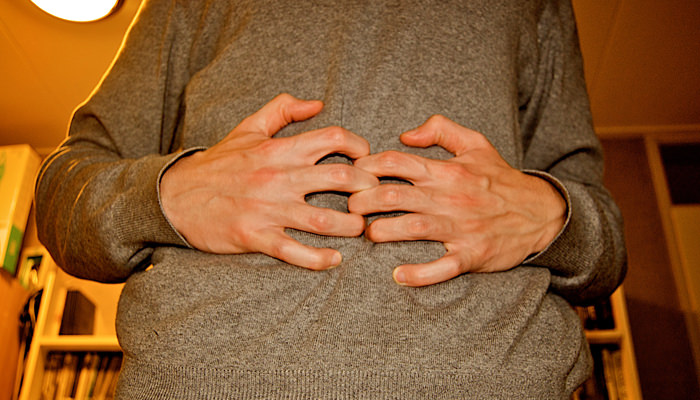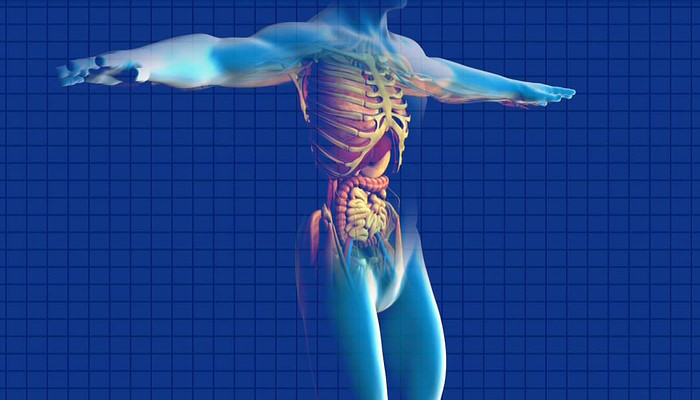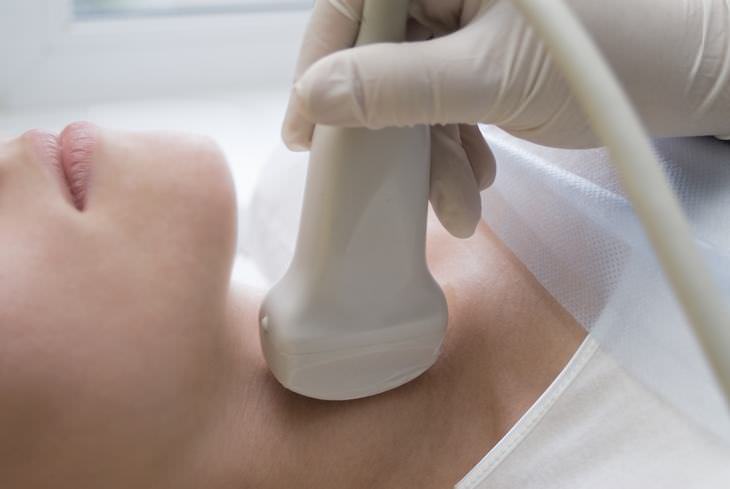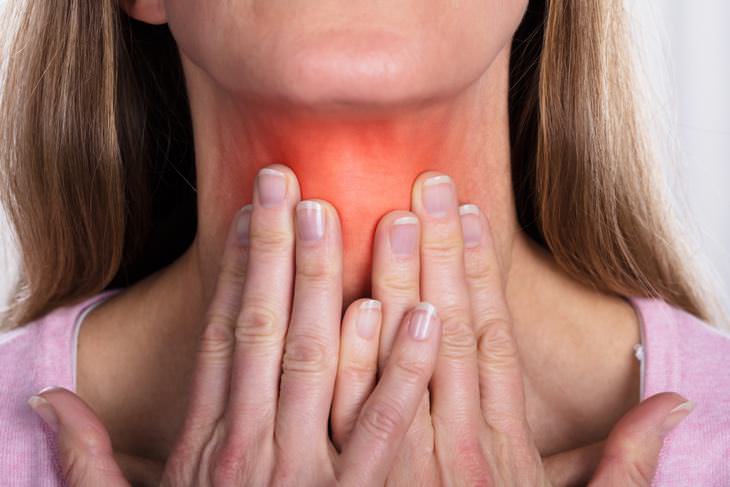The lifestyle of today is such that people always have too many balls in the air and are competing with time. However, that is no excuse to eat junk food on the go all the time. It leads to obesity and high cholesterol levels which are harmful for health. Even though awareness regarding this has been generated, the number of people suffering from high cholesterol has continues to increase steadily over the years. High cholesterol can easily be managed by following a few basic rules. Read on, before it’s too late.
i). Fats and Cholesterol : Saturated and unsaturated are the two main types of fat. Consuming foods that are high in saturated fat can raise cholesterol levels in the blood. Foods high in saturated fat include ghee, cheese, cream, cakes, biscuits, fatty cuts of meat and foods containing coconut or palm oil. Unsaturated fat can actually help in reducing cholesterol levels. Foods high in unsaturated fats include oily fish, nuts, seeds and vegetable oils and spreads. As nuts are high in calories, only a handful is enough per serving. Include nuts such as almonds, hazelnuts, walnuts etcetera. Fish contains omega-3 fatty acids which are very good for the heart. Finally, reduce the total amount of fat in your diet by avoiding fried and roasted foods. Steam, boil or grill your food. If you must use oil, use olive oil.
ii). Fiber and cholesterol: The two different types of fiber are soluble fiber and insoluble fiber. Soluble fiber can be digested by your body whereas insoluble fiber cannot. Foods containing soluble fiber include oats, beans, peas, lentils, chickpeas and of course, fruits and vegetables. Bananas are an excellent source of fiber. Soluble fiber can reduce the absorption of cholesterol into your bloodstream.
iii). Another important point to be considered is the size of the portion being consumed. Try to eat 5 balanced meals, containing small portions, a day. Reducing your intake of caffeine can also help in lowering your cholesterol levels.
2) Exercise: Studies have shown that exercising even 3 times a week can reduce your cholesterol levels. The best form of exercise is to go for long walks. It doesn’t require anything and can be done anytime, even in between your work. If you are looking more vigorous activities then you can try cycling, running, dancing and go to the gym. The most important thing is to enjoy what you do.
3) Drink Water: Try to drink at least 8 glasses of water per day as drinking more water keeps the body fitter as it reduces fats. Our kidneys also do not function properly if adequate amount of water is not supplied. Moreover, it also eliminates water retention properly. It makes the endocrine gland function properly which helps in balancing our body’s electrolytes, minerals such as sodium, chloride and potassium, which regulate body temperature and control blood pressure. Finally, it helps in the transportation of water-soluble vitamins and nutrients such as protein, minerals and vitamins across the body. 4) Quit Smoking: Smoking not only increases the LDL (low density lipoproteins, the bad cholesterol, while decreasing HDL (high density lipoproteins), the good cholesterol levels. This damages the arteries. The nicotine in cigarettes can also lead to heart palpitations. Smoking also makes the blood stickier by raising fibrinogen levels and platelet counts. Carbon monoxide from cigarette smoke also raises blood cholesterol levels. Research has found that giving up smoking leads to the rising of the HDL levels and depleting of the LDL levels. Within 24 hours of quitting, risk of a heart attack subsides. Due to all the above, it is proven that it makes sense to quit smoking. |
24 January 2020
Effective Ways To Lower Your Cholesterol Levels
Astrologer Vighnesh India: +91 8778336835 USA: +1 (425) 358-6565 / +1 (716) 777-3857 Wat'sapp.. Consultation by web appointment www.astrovighnesh.com
Astrologer in US : #Astrologer in USA : #Astrologer in India : #Astrologer in Chennai : # Best Astrologer in :#Pancha Pakshi Astrology : #Astrologer in Malaysia : #Astrologer in Sri Lanka : #Astrologer in Dubai and UAE
Astrologer Vighnesh India: +91 8778336835 USA: +1 (425) 358-6565 / +1 (716) 777-3857 Wat'sapp.. Consultation by web appointment www.astrovighnesh.com
Astrologer in US : #Astrologer in USA : #Astrologer in India : #Astrologer in Chennai : # Best Astrologer in :#Pancha Pakshi Astrology : #Astrologer in Malaysia : #Astrologer in Sri Lanka : #Astrologer in Dubai and UAE
Are
you getting enough vitamin D? If you shun the sun, you may be at risk
for vitamin D deficiency. Vitamin D, also known as the sunshine
vitamin, is produced by the body in response to skin being exposed to
sunlight. You can also get this vitamin from supplements and foods, such
as some fish, fish liver oils, egg yolks and in fortified dairy,
cereals and grain products. Many people however are vitamin D deficient
and they are not even aware of it. So if you notice any of these signs,
visit a doctor soon and get your levels checked.
1. Muscle and Bone Weakness:
Our body stops building bone mass around age 30, and a lack of vitamin D can speed up or worsen osteoporosis symptoms.
2. Feeling Blue Or Sad:

Depression, mood swings are often linked to a shortage of vitamin D. Vitamin D may work the same brain areas that affect mood.
3. Chronic Gum Disease:

Getting
enough vitamin D is important for oral health. Periodontal disease is a
chronic gum condition. Bacteria cause the gums to swell and
bleed. Some studies indicate a direct role of sunlight in reducing the
risk of periodontal disease.
4. High Blood Pressure:

Hypertension is also known as high blood pressure. Research
shows that there is a link between vitamin D and hypertension. People
with higher vitamin D levels tend to have lower blood pressure and are
less likely to develop hypertension.
5. Fatigue and Sleepiness:

Research links a deficiency of vitamin D to chronic fatigue syndrome. Low vitamin D results in fatigue and sleepiness.
6. Mood Swings:

Vitamin D receptors have been found in many parts of the brain. Having low vitamin D levels has been linked to depression.
7. Overweight:

Researxh
shows vitamin D deficiency is associated with both developing obesity
and the risk of obesity related complications. Vitamin D supplementation
helps weight loss in obese and overweight patients with vitamin D
deficiency.
8. Gut Issues:

Vitamin D deficiency can also leave many people with digestive problems.
9. Allergies:

Research shows that vitamin D deficiency also has a role to play in the development of allergy.
11 January 2020
Naturally improve digestive system!
Astrologer Vighnesh India: +91 8778336835 USA: +1 (425) 358-6565 / +1 (716) 777-3857 Wat'sapp.. Consultation by web appointment www.astrovighnesh.com
Astrologer in US : #Astrologer in USA : #Astrologer in India : #Astrologer in Chennai : # Best Astrologer in :#Pancha Pakshi Astrology : #Astrologer in Malaysia : #Astrologer in Sri Lanka : #Astrologer in Dubai and UAE
Many health issues can be traced back to the digestive system, and can be caused by abuse of antibiotics, stress, over consumption of alcohol, infections, etc. most people aren’t even aware that their digestive system isn’t functioning well. If you’re suffering from heartburn, constipation, diarrhea, bloating, belching, unexplained lethargy or even odd cravings, you may also have digestive problems. There are many other symptoms, but what you need to know is that your digestive system is not functioning well. This can lead to the inability to absorb nutrients that the body needs for its everyday functions.
Better Bowels
1. Avoid foods that irritate your stomach
Some
people are allergic or intolerant to certain types of food, such as
dairy, gluten, corn, soy, nuts, eggs, etc. Paying attention to your
overall feeling after you eat these kinds of foods will help you in the
future. If you feel bloated, unable to concentrate, skin issues or any
other symptom that appears after eating, consider avoiding that type of
food. Test your body and avoid one type of food each week to see which
ones are the not agreeing with you.
2. Eat more fat, but not too much
The
general consensus is to eat less fat, especially when constipated and
get more fiber in your diet. A digestive system that is not working well
will have difficulties in processing these fibers, leading to further
issues due to the undigested fibers in your body. Fat actually helps in
releasing these undigested fibers, so if you’re suffering from
constipation, you need fat. Remember – get your fat from a healthy
source, such as coconut oil, fish oil, olive oil, or flaxseed oil, and
avoid unhealthy fat from soy, sunflower seeds or margarine.
3. Consume more fermented and probiotic foods
Beneficial
bacteria perform much of the digestive processes in your bowels. If the
delicate balance of their ecosystem is disturbed, they may decline in
numbers, leading to digestion difficulties. To strengthen your digestive
bacteria, add probiotic foods to your diet, such as yogurt, peas, dark
chocolate, pickled cucumbers, and pickled cabbage.
4. Chew more
Many
of us forget the importance of chewing as part of the digestion
process. Even when we chew, enzymes in our saliva start to break down
the food, so the more you chew – the easier it is to digest the food.
Try chewing everything 20 times before swallowing. The process may be
annoying at first, but it’ll help your digestion, and also can help in
weight-loss.
5. Start each meal with something bitter
5. Start each meal with something bitter
Even
if you’re hungry, your stomach may not be ready to digest food just
yet. Bitter food helps signaling your body that it’s time to produce
stomach acids, which will help in digestion of the rest of the food.
Greens such as rocket, as well as apple cider vinegar, are a great
bitter starter.
6. Eat bone soup
Homemade
bone soup is an excellent source of nutrients that your body craves,
and it’s also cheap to make. The soup contains many minerals, amino
acids, gelatin, and glycine, all of which are beneficial for your
digestive system. Have it as a meal or as a side, but either way – your
body will thank you.
7. Clear your bowels occasionally
We
clean our body by showering, but often forget that the insides need a
cleansing too sometimes. An enema is an ideal solution for internal
cleansing of the bowels. It softens and breaks down any leftover refuse
in our guts, then flushes it out. The results are better functioning
digestive system and liver, so clearing out these toxins will improve
your general feeling as well.
8. Drink ginger or chamomile tea
On
top of its calming properties, chamomile tea also aids the digestion
process and can help with nausea, stomachaches, and digestive cramps.
Drink a cup a day, and you’ll feel the change. If you’re not partial to
chamomile, make a ginger infusion instead – but be sure to use fresh
ginger root.
9. Massage your stomach after you eat
Many
alternative healers suggest massaging your stomach for 2-5 minutes
after every meal to aid in digestion. To do that, place your palm on the
top of your stomach and move it in a clockwise direction. If you don’t
feel like doing it after every meal, doing it once in the evening is
also helpful.
10. Support your liver functions
One
of the liver’s main functions is producing bile, which helps break down
fats in a process that helps the absorption of vitamins A, D, E, K.
Insufficient amounts of bile can lead to harder-working digestive system
that in turn, causes lethargy, particularly after eating fatty foods.
To support your liver, eat beets, artichoke, proteins, and liver.
11. Eat a healthy breakfast
It’s
not called “the most important meal of the day” for nothing. A good
breakfast kickstarts your metabolism and keeps it working well
throughout the day. Even if you’re not hungry, remember that you’re
doing yourself a service when you eat, and if you add some yoghurt, you
benefit twice.
12. Sit correctly on the toilet
Did
you know that your posture when you’re on the toilet actually affects
your digestive system? New research found that the best way to move our
bowels is by squatting, not sitting. When we sit, we apply pressure to
the rectum, similarly to bending a garden hose, obstructing the healthy
flow. When you squat, however, your rectum is loose and straight, making
it easier to have a movement. So use a small stool when you make your
own, to have an easier and healthier time when on the bowl.
13. Drink water, but not during a meal
It’s
important to drink at least 8 cups of water a day to keep the digestion
running smoothly, but nutritionists recommend not drinking during the
meal. Some foods make us thirsty, and in these cases, you should take
small sips rather than large gulps. Another recommendation is to drink
room-temperature water, since cold water slows the digestion process
down.
14. Avoid eating when stressed or active
Eating
when you’re stressed or in a rush is a sure way to get indigestion..
When you eat calmly, your body activates the parasympathetic system,
which digestion is part of. In stressful times or during physical
activities, the body uses the sympathetic system, taking away energy
from the digestive processes. This is why people feel nauseated during
stressful times or after running.
Astrologer Vighnesh India: +91 8778336835 USA: +1 (425) 358-6565 / +1 (716) 777-3857 Wat'sapp.. Consultation by web appointment www.astrovighnesh.com
Astrologer in US : #Astrologer in USA : #Astrologer in India : #Astrologer in Chennai : # Best Astrologer in :#Pancha Pakshi Astrology : #Astrologer in Malaysia : #Astrologer in Sri Lanka : #Astrologer in Dubai and UAE
Astrologer in US : #Astrologer in USA : #Astrologer in India : #Astrologer in Chennai : # Best Astrologer in :#Pancha Pakshi Astrology : #Astrologer in Malaysia : #Astrologer in Sri Lanka : #Astrologer in Dubai and UAE
The
thyroid, a small gland that sits around your windpipe under your larynx (voice box), secretes hormones to control the body's metabolism. This gland is susceptible to malfunctioning and when this happens, it acts in different ways depending on whether it's
producing the hormone in excess, known as hyperthyroidism, or not producing enough of it, hypothyroidism. Take a look at this list of symptoms of both thyroid conditions so that you can become aware of a malfunctioning thyroid. If something may be wrong, be
sure to visit a doctor as soon as possible.
Hypothyroidism
is a condition in which the thyroid gland does not produce enough thyroid hormone. A likely cause of hypothyroidism is a deficiency of iodine. Generally, hypothyroidism is more common in women than in men, with women over the age of 60 being most susceptible.
You
feel lethargic: The thyroid gland produces hormones that control the way the body uses energy. Underproduction of hormones can lead you to feel depressed and sluggish.
A
change in your voice: The thyroid gland and the larynx (the voice box) are located close to each other. It is likely that a dysfunction of the thyroid gland can affect the larynx, causing issues with your voice.
Thickened
skin and thinning eyebrows: Fluid retention is a symptom of hypothyroidism and can cause pain in the muscles and joints. It often manifests around the ankles and feet and worsens with physical activity.
Poor
hearing: While the reason may not be completely known, research has clearly identified links between thyroid malfunction and the loss of hearing.
Loss
of libido: Hypothyroidism causes the metabolism to slow down, meaning that the reproductive organs slow down as well. This can lead to less production of sex hormones thereby affecting the libido.
This
condition is caused by excessive production of the thyroid hormone in the body. 60-80% of hyperthyroidism cases in the U.S. are caused by Graves' disease. Other causes include multinodular goiter, toxic adenoma, inflammation of the thyroid, and an excessive
amount of iodine in the diet. Its occurrence is around 2 to 10 times more widespread in women.
An
increase in appetite: This can be a sign of hyperthyroidism as the excessive release of the thyroid hormone in your body may make you feel hungry all the time. The upside to this is that the excess food intake doesn't necessarily make you gain weight
since the increased metabolism of the body offsets it.
Excessive
urination: A faster metabolism means an increased blood flow and this makes your kidneys filter more, so more urine is produced.
Excessive
thirst: Hyperthyroidism causes excessive urination. Your body needs to replenish its water levels and this makes you crave more water.
Hand
tremors: It's normal to experience mild tremors while keeping your hands and forearms in the same position for long. Yet, as hyperthyroidism speeds up almost all metabolic functions and puts the body in fast-forward mode, the length of time after
which the hands would normally start trembling gets reduced. This causes noticeable tremors in the hands and the forearms.
Bouts
of an excessive sex drive: With an increase in metabolism, hyperthyroidism can cause bouts of an excessive sex drive.
Lifestyle
Tips for Hypothyroidism: Follow a healthy diet of vegetables, fruits, whole grains and lean protein. To keep your energy levels stable, eat small meals throughout the day. Weight gain is a common symptom of hypothyroidism, so eating healthy can help
you manage weight gain. You should also follow an active lifestyle as exercise can help you manage your weight as well as boosts up energy levels and decreases stress which is especially important if you have hypothyroidism.
You
can also practice yoga and meditation. As hypothyroidism can lead to lethargy and depression, both meditation and yoga can help you in your battle against these conditions. Another factor you can incorporate is going to bed early. When you feel lethargic and
low in energy, common symptoms of hypothyroidism, give your body the sleep it needs to replenish this energy.
Lifestyle
tips for hyperthyroidism: Firstly, avoid iodine. People with hyperthyroidism should not eat foods high in iodine and should also avoid milk and other dairy products. It is also suggested that fish, sushi, shellfish, and seaweed should be avoided.
Practicing meditation will also help. As an overproduction of thyroid hormones results in more brain stimulation causing sufferers to feel jittery or anxious. Finally, be sure to drink water as hyperthyroidism causes you to lose a lot of water through urination.
07 January 2020
Gastric Obstruction – Causes, Symptoms Treatments!
Astrologer Vighnesh India: +91 8778336835 USA: +1 (425) 358-6565 / +1 (716) 777-3857 Wat'sapp.. Consultation by web appointment www.astrovighnesh.com
Astrologer in US : #Astrologer in USA : #Astrologer in India : #Astrologer in Chennai : # Best Astrologer in :#Pancha Pakshi Astrology : #Astrologer in Malaysia : #Astrologer in Sri Lanka : #Astrologer in Dubai and UAE
Your
bowels are tasked with removing waste and toxins from our body, as well
as absorbing salts, liquids, nutrients, indigestible vitamins. They do
it to extract all possible nutrients that weren’t digested in the
stomach and maintain the balance of electrolytes in our system.
Astrologer in US : #Astrologer in USA : #Astrologer in India : #Astrologer in Chennai : # Best Astrologer in :#Pancha Pakshi Astrology : #Astrologer in Malaysia : #Astrologer in Sri Lanka : #Astrologer in Dubai and UAE
Your bowels are tasked with removing waste and toxins from our body, as well as absorbing salts, liquids, nutrients, indigestible vitamins. They do it to extract all possible nutrients that weren’t digested in the stomach and maintain the balance of electrolytes in our system.
Your bowels are tasked with removing waste and toxins from our body, as well as absorbing salts, liquids, nutrients, indigestible vitamins. They do it to extract all possible nutrients that weren’t digested in the stomach and maintain the balance of electrolytes in our system.
When
your bowels are not functioning well, they collect the waste and toxins
they’re supposed to get rid of, resulting in various diseases and
health issues. If left undiagnosed and untreated, obstructed bowels lead
to kidney and liver-related health problems. In this article, you’ll
learn all you need to know about bowel obstruction, symptoms that should
serve as warning signals, and the natural home remedies needed to fix
and prevent it.

What causes gastric obstructions?
The
reasons for obstructed bowels are plentiful, such as hernias, cysts,
tumors, etc. Another reason is overeating foods that are harmful to our
bodies, such as food rich in preservatives and other chemicals. These
chemicals lead to a buildup of mucus in the guts, which releases toxins
that can damage the body. Another cause is a buildup of fecal matter or
foreign bodies in the lower intestine.
Bezoars
can also cause gastric obstructions. Bezoars are a fibrous lump that
forms in the stomach, and the most common type is formed of undigested
pieces of food. They are mainly composed out of plant cellulose, most
common in unripe fruit and persimmons.
Men
are in a higher risk group for contracting phytobezoars in their
stomachs, with symptoms that include upper gastric pains, feeling full
soon after beginning to eat, nausea, vomiting, lack of appetite and loss
of weight. Symptoms only appear in 10-25% of the cases, making
phytobezoars hard to diagnose, and can lead to gastric obstructions.
What happens when your gastrointestinal system is obstructed?
When
the small intestine is blocked, it will begin contracting in order to
move its content beyond the obstruction, which can lead to frequent
diarrhea. In later stages, it will become less effective, causing a
buildup of water and electrolytes that can lead to dehydration.
The
obstruction will also create pressure on the intestinal walls, and if
left untreated – will only get worse. This can lead to venous drainage
obstruction, a rising of the diaphragm, and a suppression of the lungs’
function. The obstruction itself will aid in the bacterial buildup, in
particular, E-Coli, Klebsiella, and Enterococcus Faecalis. The bacteria
colonies will grow very quickly, increasing the chances of gangrene and
intestinal punctures.
Patients
lose their ability to pass feces and gasses along the intestine,
causing swelling and increasing stomach pains. The large intestine will
expand due to the buildup of bacterium, liquids, feces and gasses.

Which symptoms can indicate an obstruction?
Symptoms
can be evidence of obstruction caused be stomach cramping or
phytobezoars. Once you notice these symptoms, it is recommended that you
pay a visit to your family doctor, to evaluate the nature of the
obstruction. Not all symptoms may appear, but they will appear in these
general groups:
- Constipation, diarrhea, flatulence, lethargy and swelling.
- Headaches, memory loss, blurred vision.
- Burning sensation in the upper digestive system.
- Weight gain, lack of energy and indigestion.
- Ulcers in the stomach and Duodenum, ulcerative colitis and stomach inflammation.
- Urinary tract infections and inflammation of the kidneys.
- Constant colds, allergies, joint pains and chronic diseases.
Treatments:
The
most basic treatment is hooking the patient up to an IV, which can only
be performed by a doctor. In some cases, the obstructions can be
relieved by using a nasogastric tube, and in severe cases, an operation
will be required. An enema may help in some cases, but if performed
incorrectly – can lead to internal bleeding.
The simplest, natural treatment for intestinal obstruction is eating 1-3 tablespoons of flax seeds, combined with 100-15ml of Kefir
(a type of fermented milk drink) for three days. Flax seeds help the
body dispose of fecal matter, mucus and parasites. Additionally, flax
seeds can help prevent several forms of cancer, heart diseases,
diabetes, and even help lower cholesterol levels. Kefir contains many
probiotic bacteria, enzymes, vitamin B12 and proteins, all of which are
good for your body. Kefir also helps in restoring the gastric biome and
is lactose-free.
To clear your intestines from obstructions, add kefir and flax seeds to your breakfast in this manner:
- 1st week: 100ml of kefir and one tablespoon of flax seeds
- 2nd week: 100ml of kefir and two tablespoons of flax seeds
- 3rd week: 150ml of kefir and three tablespoons of flax seeds
Additionally, drink at least two liters of water every day.

Prevention:
The
best way to unblock a phytobezoar obstruction is by eating food that is
high in protein and low in fiber. Once the blockage is gone, follow
these dietary tips to heal and prevent reoccurrences.
- Beverages: It is advised that you keep your body well hydrated. Drink fruit-shakes, water, and sports drinks that are rich in electrolytes. Avoid high-fat dairy.
- Dairy: Stick to low-fat or fat-free products.
- Grains and bread: Fiber from whole grain tends to slow down the digestive process. Focus on plain white bread, pasta, and regular grain.
- Fruits and vegetables: Boiled or canned fruits and vegetables are the way to go. Avoid eating the skin. Watermelon, melons, and bananas can be consumed fresh. Avoid high-fiber fruits and vegetables.
- Meat and meat substitutes: Protein is essential to the healing process. Stick to skinless chicken or turkey meat. Other kinds of lean meat, such as fish, eggs and tofu are also good.
- Other: Avoid fried foods and use as little butter as possible. Boiled or steamed foods are the most recommended. Minimize the use of seasoning and fatty sauces and dressings.














